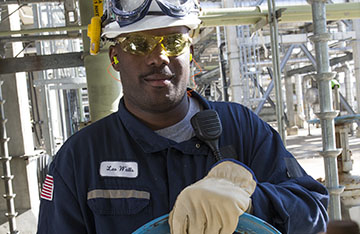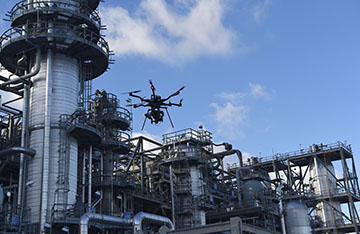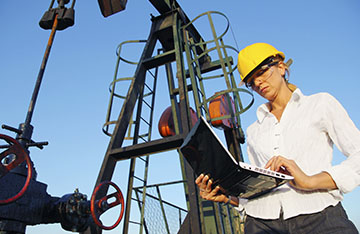Standards News Highlights
API Recommended Practice 754, 3rd Edition
API published the 3rd edition of Recommended Practice (RP) 754 Process Safety Performance Indicators for the Refining and Petrochemical Industries. This standard helps facilities implement a comprehensive program to reduce safety hazards through a system of continuous assessment and improvement. This update includes the reclassification of materials, clarification of definitions, expansion of data collection capabilities, and other key changes.
API Standard 1104, 22nd Edition
API published the 22nd edition of Standard (Std) 1104, Welding of Pipelines and Related Facilities, updating an important global standard that supports industry-wide actions to strengthen environmental sustainability efforts while meeting growing energy demand. This new edition provides requirements for gas and arc welding used in the construction and in-service repair of pipes and components for the compression, pumping and pipeline transmission of crude oil, petroleum products, fuel gases, carbon dioxide and nitrogen.
API Recommended Practice (RP) 65-3, 1st Edition
API Recommended Practice (RP) 65-3, 1st Edition, Wellbore Plugging and Abandonment, has been published. This document provides guidance for the design, placement and verification of cement plugs used in wells that will be temporarily or permanently closed, as well as for well remediation and verification of annular barriers, reinforcing groundwater protection and emissions retention.
API MPMS Chapter 17.10.1, 2nd Edition
API MPMS Chapter 17.10.1 2nd Edition, Measurement of Cargoes On Board Marine Gas Carriers, Part 1 – Liquefied Natural Gas, has been published. This document provides accepted methods for measuring quantities on liquefied natural gas (LNG) carriers for those involved in the LNG trade on ships and onshore. It includes recommended methods for measuring, reporting and documenting quantities on board these vessels.
API Recommended Practice 2D, 7th Ed.
API RP 2D, 7th Edition, Operation and Maintenance of Offshore Cranes, provides greater insight on the requirements of API RP 2D-2 and is also a companion to API Spec 2C that establishes general principles for the safe operation and maintenance of these offshore cranes. API offers extensive training opportunities on RP 2D across the globe to improve operating techniques and safety.
API Standards: International Usage and Deployment
The API Standards: International Usage and Deployment report demonstrates the role industry standards play in the development and spread of technologies and products used around the world to enhance environmental, health, safety, and sustainability. The report analyzes how 17 economies in energy producing regions use API’s technical standards as the basis for government regulations and safety programs. The report is focused broadly on the use of API standards across all segments — not only in national laws and regulations but also in policy guidance, national standards, technical manuals, and industry practice.
API Manual of Petroleum Measurement Standards (MPMS) 14.10, 2nd Edition
API has published it's 75th standard of 2021 - API Manual of Petroleum Measurement Standards (MPMS) 14.10 2nd edition, Natural Gas Fluids Measurement - Measurement of Flow to Flares. The standard addressess measurement of flow to flares and includes application and installation considerations, calibration, operation, calculations and more.
API Standard 650, 13th Ed.
API Standard 650, Welded Tanks for Oil Storage, Thirteenth Edition, has been published to ensure the safety, sustainability, and environmental performance of oil storage tanks. The updated standard will help continue operational excellence and trust between operators and manufacturers.
API Spec 6D, 25th Edition
API Published the 25th edition of API Specification, Specification for Valves. This specification is utilized internationally to help ensure access to reliable and sustainable energy by defining requirements of manufacturing valves. The updated edition includes revisions that follow the evolving needs of the industry and increase its applicability.
API 1525A, 2nd Edition
Second Edition of API 1525A - Bulk Engine Oil Chain of Custody and Quality Documentation. The publication provides procedures for managing the bulk engine oil chain of custody to ensure oil quality from the point of manufacture to installation in a consumer’s engine.





